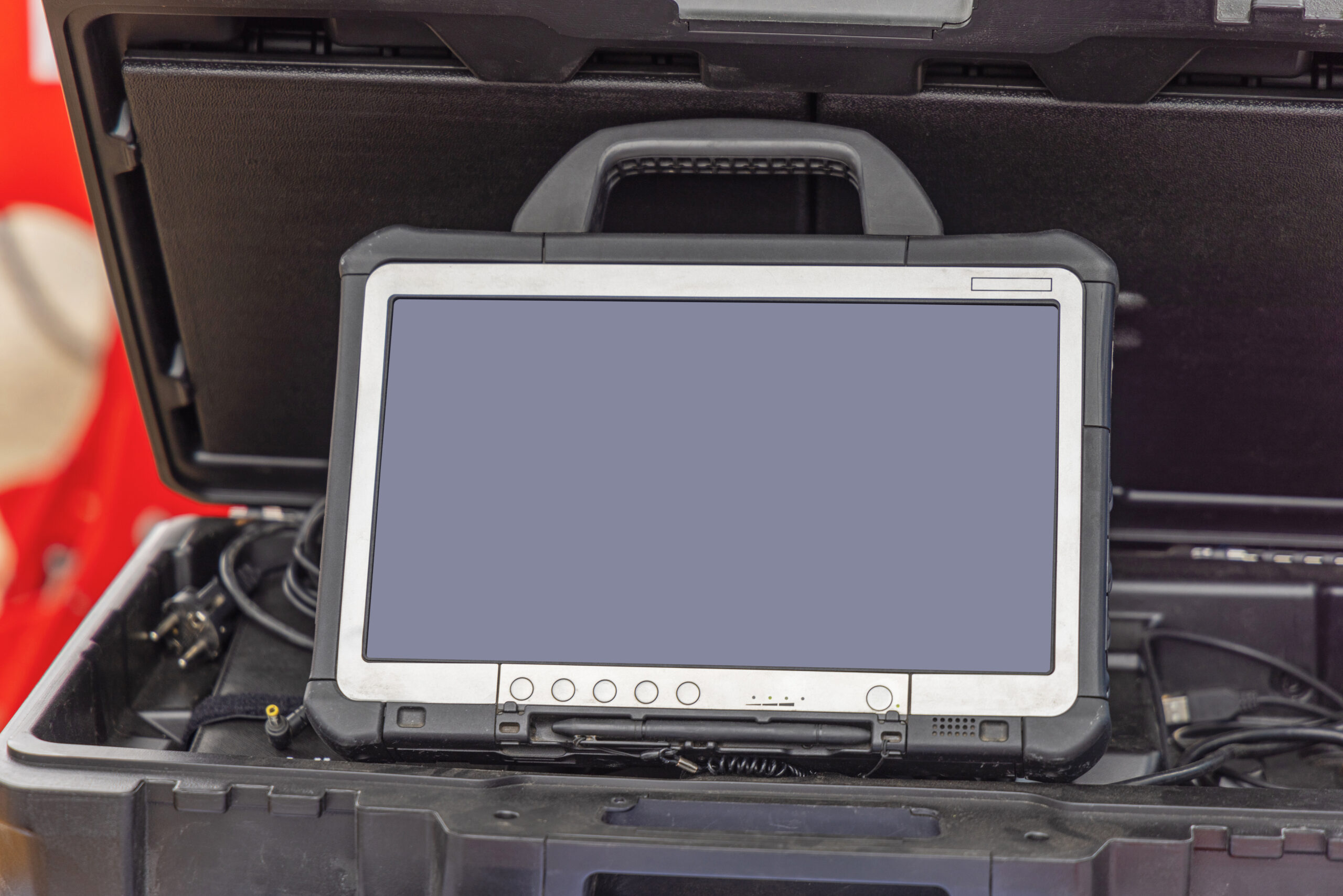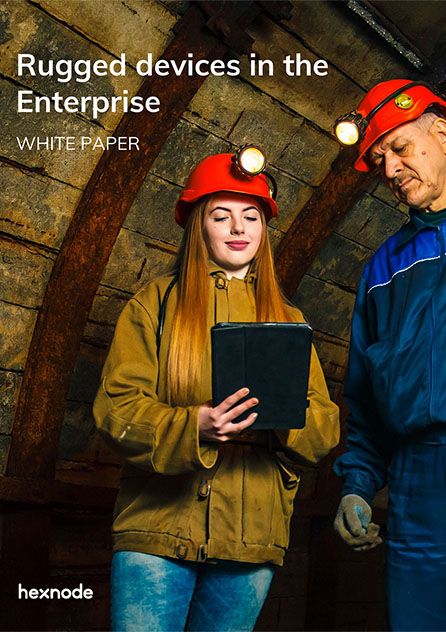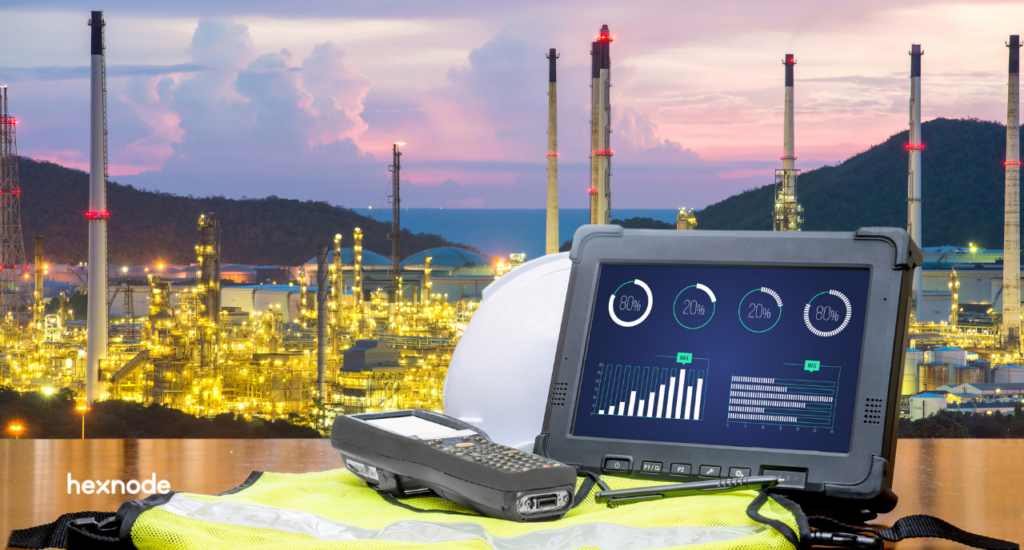In this age where everything is getting digitized, frontline and field workers also need smartphones and other mobile devices. It is not feasible to give them a typical consumer-grade device due to the nature of their work. Frontline and field workers benefit from rugged devices since they can survive harsh environments.
Choosing a rugged device is never simple because there are so many things to take into account, such as if it will be strong enough, that it will satisfy all of your needs, whether or not it is easy to use, and so on.
Sign up for a free trial
Sign up for a free trial and explore Hexnode's rugged device management features.
Sign upAmong all the other questions, the one that stands out the most is if the device will be worth the investment. Rugged gadgets might be one of your best investments provided you pick the proper one for your needs.
Aside from rugged mobile phones and handheld devices, some of the most popularly utilized rugged devices are rugged tablets and laptops. This article will help you pick the best option for your needs if you are considering using any of these two in your business.
What is the difference between the two?
Rugged laptops and rugged tablets are different from each other in many aspects and it is pretty easy to distinguish both. The first and most noticeable difference between a rugged laptop and a rugged tablet is that laptops have an attached keyboard. Most tablets don’t have a keyboard, but it is possible to use external keyboards with tablets.
Another difference is that rugged laptops are usually much bulkier than rugged tablets. Being bulkier might sound like a disadvantage but it’s not always the case. Due to their bigger size, rugged laptops usually have better specifications like better battery, better processor, and even a better display.

Although tablets and laptops typically have different operating systems, this isn’t always the case. Tablets can run Windows, Android, or even iPadOS while rugged laptops often run Windows.
Mobility is another difference between rugged laptops and tablets. Ruggedized tablets are usually used for hand-held uses since they are lightweight and can be carried around easily. In the case of rugged laptops, they are usually fixed to a single location and are not used as mobile devices.
Which one gives a better ROI, rugged tablet or rugged laptop?
When considering the scope of use and productivity, rugged tablets have a clear edge over rugged laptops all thanks to their lightweight. Since the tablets are light and mobile, they can be used for different purposes within the same organization. This will ultimately reduce the amount of money spent on buying devices.
Due to the flexibility of tablets, one tablet may be given to a team of employees, saving time, money, and the hassle of setting up and maintaining several devices.
The majority of tablets come equipped with high-resolution built-in cameras, which is another significant benefit they offer over rugged laptops, which offer either a built-in low-resolution web camera or no camera at all.
In businesses like warehouses, where scanning is one of the main applications of a rugged handheld device, high-resolution cameras are an added bonus.
Organizations using rugged tablets don’t have to spend money on additional devices to help with scanning-related duties because tablets already come with cameras. However, rugged laptops typically lack high-resolution built-in cameras and rely on external devices for scanning and other camera-related functions.
Compared to rugged laptops, rugged tablets often have greater IP ratings, making them more resistant to harsh circumstances and also less damage-prone.

Even though tablets have a much more delicate display, rugged laptops are more prone to damage because they have more moving parts, like hinges and joints, so it is harder to completely ruggedize a laptop.
Since tablets are sturdier, the money spent on the repair and replacement in the case of tablets will be less compared to laptops. Also, rugged laptops use superior parts, so damage to them will cause a greater financial loss.
As was already noted, one of the main benefits of rugged laptops over rugged tablets is that they generally have much better specifications. This is due to their larger size, which enables them to contain larger and better components.
So, compared to tablets in the same price range, laptops typically offer better batteries, displays, and processors.
How can Hexnode improve the ROI of rugged devices?
Even though rugged devices have a great ROI, they perform even better when combined with the right device management solution. Hexnode UEM helps you remotely manage your rugged device fleet easily.

Featured resource
Rugged devices in the Enterprise
Rugged devices have made mobility possible in a lot of industries. However, these devices need efficient management methods to safeguard sensitive data. Check out the benefits of rugged devices and learn how you can secure them with Hexnode.
Download white paperWith features like OEMConfig and remote kiosk lockdown, Hexnode allows IT admins to control rugged devices smoothly and efficiently. Since Hexnode is cloud-based, you can manage your devices even if you have a lot of offices spread around the globe.
Hexnode has other features like geo-fencing and dynamic policy association that lets companies ensure that devices are used only within company limits and not used outside. With Hexnode, you can also monitor device health, keeping you up to date about the requirement for timely device checkups and repairs.
Hexnode supports all leading operating systems and all device types, so you can manage any of your rugged device with Hexnode.
In conclusion,
The use of rugged devices is widespread across almost all industries, and as more gadgets hit the market, it will get harder to select the one that best meets your needs.





